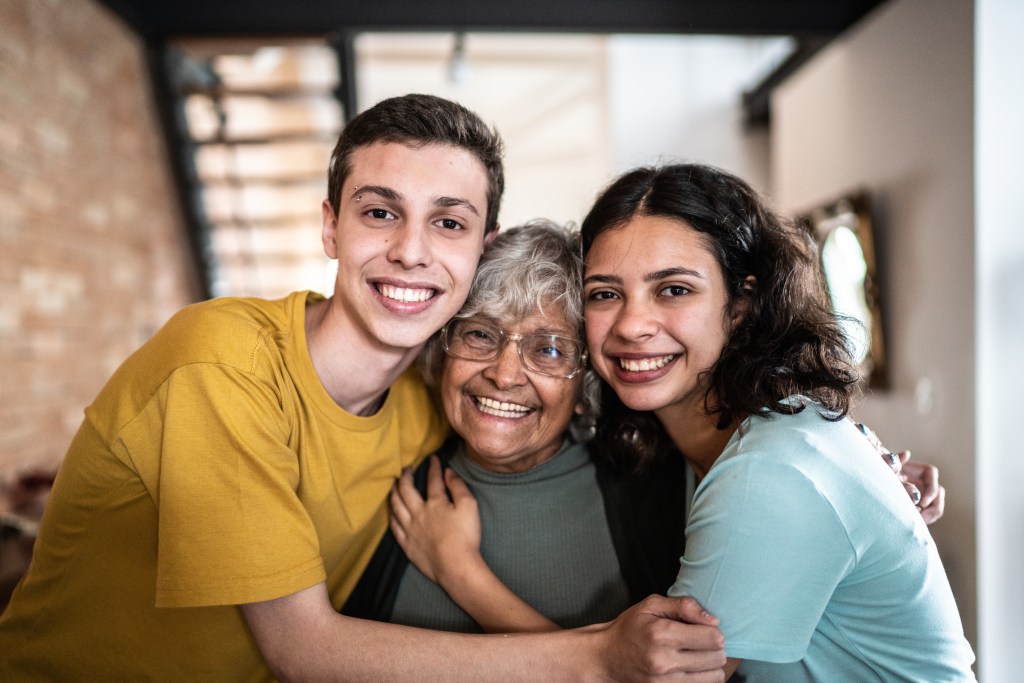
November, with its cooler air and focus on togetherness, invites us to slow down, reflect, and express gratitude for the warmth in our lives. But what if gratitude became more than just a seasonal practice? What if we intentionally taught our children to appreciate life’s blessings year-round?
Gratitude goes beyond saying “thank you.” It’s a powerful mindset—a way of seeing the world that emphasizes the good, even in tough times. This perspective not only helps children feel happier in the moment but also offers long-lasting benefits for their mental, emotional, and physical well-being.
At Harmony, we believe that teaching gratitude equips children with skills that build resilience, fosters stronger relationships, and helps them find greater calm in their everyday lives. And as parents, you are in the perfect position to nurture this habit in ways that will set your children up for success in school and beyond.
The Power of Gratitude
Research highlights how transformative gratitude can be. Studies show that practicing gratitude improves mental health, enhances self-esteem, reduces anxiety, and strengthens social connections. Children who adopt a grateful mindset are often more optimistic, better able to handle challenges, and more motivated to collaborate with others.
Even small daily practices, like naming three things they’re thankful for, can help children reframe their perspectives, reduce stress, and build optimism. Over time, these small habits can ripple outward, positively shaping how they interact with others and their environment.
Gratitude at Home
It doesn’t need to be time-consuming to teach your children gratitude. Simple, meaningful activities can weave it into your family’s daily life. Here are a few ideas to try:
- Gratitude Journals: Encourage your child to write or draw about things they’re thankful for each day. These journals can become keepsakes they’ll cherish.
- Gratitude Jars: Create a family jar where everyone adds notes about what they’re grateful for. Read them together at the end of the week or month.
- Thank You Notes: Help your child write notes to friends, teachers, or family members to express appreciation for kindness they’ve received.
- Acts of Kindness: Involve your child in community service or small gestures like helping a neighbor or sharing toys with friends, connecting gratitude with giving back.
A Parent’s Role
As the grown-ups in your kids’ lives, you set the tone for gratitude in your household. Here are a few ways to model and reinforce this mindset:
- Talk About Gratitude: Share what you’re grateful for during meals or bedtime. Your openness will inspire your child to do the same.
- Celebrate Small Moments: Show your appreciation for everyday kindness, like when your child helps a sibling or completes a task without being asked.
- Encourage Reflection: When challenges arise, guide your child to find a silver lining or lesson, helping them see the positives in difficult situations.
A Call to Action
This year, let’s look beyond Thanksgiving as a single moment of reflection. Let’s use it as a starting point to nurture gratitude every day. By fostering this powerful habit, we can help children develop emotional intelligence and resilience while creating a more positive home environment.
Gratitude is more than a seasonal tradition; it’s a lifelong skill that can help our children—and our communities—thrive. Together, let’s teach them how to embrace and share this gift year-round.
By Dr. Nick Yoder
Associate Vice President Harmony Academy at National University
A PhD in Psychology and Education, Dr. Yoder leads and manages this nonprofit university’s program, which provides curriculum, classroom resources, and professional development tools to rural, urban, and suburban schools across the US. His work focuses on research, policy, content development, and professional learning. With a career in education spanning two decades, Dr. Yoder’s work is underpinned by a strong foundation in research and data to improve educational outcomes. He can speak on a range of issues, including creating better environments for learning and collaboration inside and outside the classroom, combating chronic absenteeism, closing the learning loss gap from COVID-19, and responding to the student mental health crisis.
He is a former Chicago Public Schools classroom teacher, instructional coach, and a preservice instructor. Dr. Yoder earned his doctoral degree in education and psychology, his master’s in psychology, and bachelor’s in psychology from the University of Michigan. He also earned a master’s in education from the University of Illinois-Chicago.